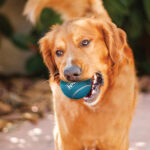
Bringing a new litter of puppies into the world is an incredible experience, not just for the mother dog but also for the owners witnessing this natural wonder. Understanding how dogs take care of their babies can provide valuable insights into canine behavior and help new dog owners support their pets during this crucial stage. Let’s explore the key behaviors that mother dogs exhibit when caring for their puppies, and learn how you, as a pet parent, can ensure the well-being of both the mother and her pups.
The Importance of Understanding Canine Parenting
Canine parenting is an intricate process that involves a range of behaviors aimed at ensuring the survival and development of the puppies. By understanding these behaviors, pet parents can provide better care and create a supportive environment for their pets. These natural instincts not only foster the growth and development of the puppies but also strengthen the bond between the mother dog and her litter.
Key Behaviors of Mother Dogs When Caring for Their Puppies
1. Nesting and Creating a Safe, Warm Place for the Puppies
One of the first things a mother dog does before giving birth is to find a safe and warm place to create a nest. This nesting behavior ensures that the puppies are born in a secure environment, protected from potential threats.
Why It’s Important:
- Provides a safe space for the puppies to be born.
- Keeps the puppies warm, crucial for their survival in the early days.
- Reduces stress for the mother, allowing her to focus on caring for her litter.
Practical Tips for Pet Owners:
- Offer a quiet, comfortable area for your dog to nest.
- Use soft bedding materials, such as blankets or towels, to create a warm environment.
- Ensure the nest is in a low-traffic area to minimize disturbances.
2. Licking to Clean and Stimulate Urination and Defecation
After birth, the mother dog will lick her puppies to clean them and stimulate their bodily functions. This behavior is critical for the health and hygiene of the newborns.
Why It’s Important:
- Keeps the puppies clean by removing birth fluids and waste.
- Stimulates the puppies’ digestive systems, helping them to urinate and defecate.
- Promotes bonding between the mother and her puppies.
Practical Tips for Pet Owners:
- Observe the mother and her puppies to ensure all are being cleaned and stimulated.
- If necessary, gently assist the mother by cleaning the puppies with a soft, damp cloth.
- Consult your vet if you notice any issues with the puppies’ elimination.
3. Nursing and Feeding the Puppies
Nursing is a vital aspect of canine parenting, providing the puppies with the necessary nutrients to grow and develop. The mother dog may nurse her puppies on a strict schedule, especially during the first few weeks.
Why It’s Important:
- Provides essential nutrients and antibodies through the mother’s milk.
- Helps the puppies grow strong and healthy.
- Encourages bonding and socialization among the litter.
Practical Tips for Pet Owners:
- Monitor the nursing sessions to ensure all puppies are feeding adequately.
- Provide the mother with a nutritious diet to support milk production.
- If a puppy is struggling to nurse, consider consulting a vet for alternative feeding options.
4. Remaining Close to the Puppies for Warmth and Protection
Mother dogs stay close to their puppies to keep them warm and protect them from potential dangers. This constant presence is crucial for the well-being of the newborns.
Why It’s Important:
- Maintains the puppies’ body temperature, which they cannot regulate themselves initially.
- Offers protection from external threats.
- Strengthens the emotional bond between the mother and her puppies.
Practical Tips for Pet Owners:
- Ensure the nesting area is warm and draft-free.
- Limit visitors and potential disturbances to the nesting area.
- Provide a comfortable space for the mother to lie close to her litter.
5. Teaching Basic Social Skills and Behaviors Through Play and Interaction
As the puppies grow, the mother dog will start to engage them in play, teaching them essential social skills and behaviors. This interaction is crucial for the puppies’ development and integration into their future homes.
Why It’s Important:
- Helps puppies learn how to interact with other dogs and humans.
- Promotes physical and mental stimulation.
- Establishes a foundation for future training and behavior.
Practical Tips for Pet Owners:
- Observe the play interactions to ensure they are positive and safe.
- Gradually introduce the puppies to new experiences and environments.
- Begin basic training and socialization with the puppies at an appropriate age.
6. Disciplining the Puppies to Establish Boundaries and Teach Respect
In addition to teaching through play, mother dogs will also discipline their puppies to establish boundaries and teach respect. This behavior helps the puppies understand acceptable social conduct.
Why It’s Important:
- Sets clear boundaries and rules for the puppies.
- Encourages respectful behavior towards other dogs and humans.
- Prepares the puppies for their future homes and interactions.
Practical Tips for Pet Owners:
- Allow the mother to discipline her puppies naturally, as long as it is not overly harsh.
- Reinforce positive behaviors with gentle training techniques.
- Provide guidance and support as the puppies learn and grow.
Summary and Conclusion
Understanding and supporting canine parenting behaviors is essential for the well-being of both the mother dog and her puppies. By creating a safe environment, monitoring feeding and cleaning, and encouraging socialization and discipline, pet parents can help ensure the healthy development of their furry family members.
Remember, each mother dog and litter is unique, so be attentive to their specific needs and consult your veterinarian if you have any concerns. With the right care and attention, your puppies will grow into well-adjusted, happy dogs, ready to bring joy to their forever homes.
If you’re a new dog owner or canine enthusiast looking for more information on raising puppies, consider booking a consultation with a professional dog trainer or behaviorist. They can provide personalized advice and support tailored to your needs.
Happy parenting!









